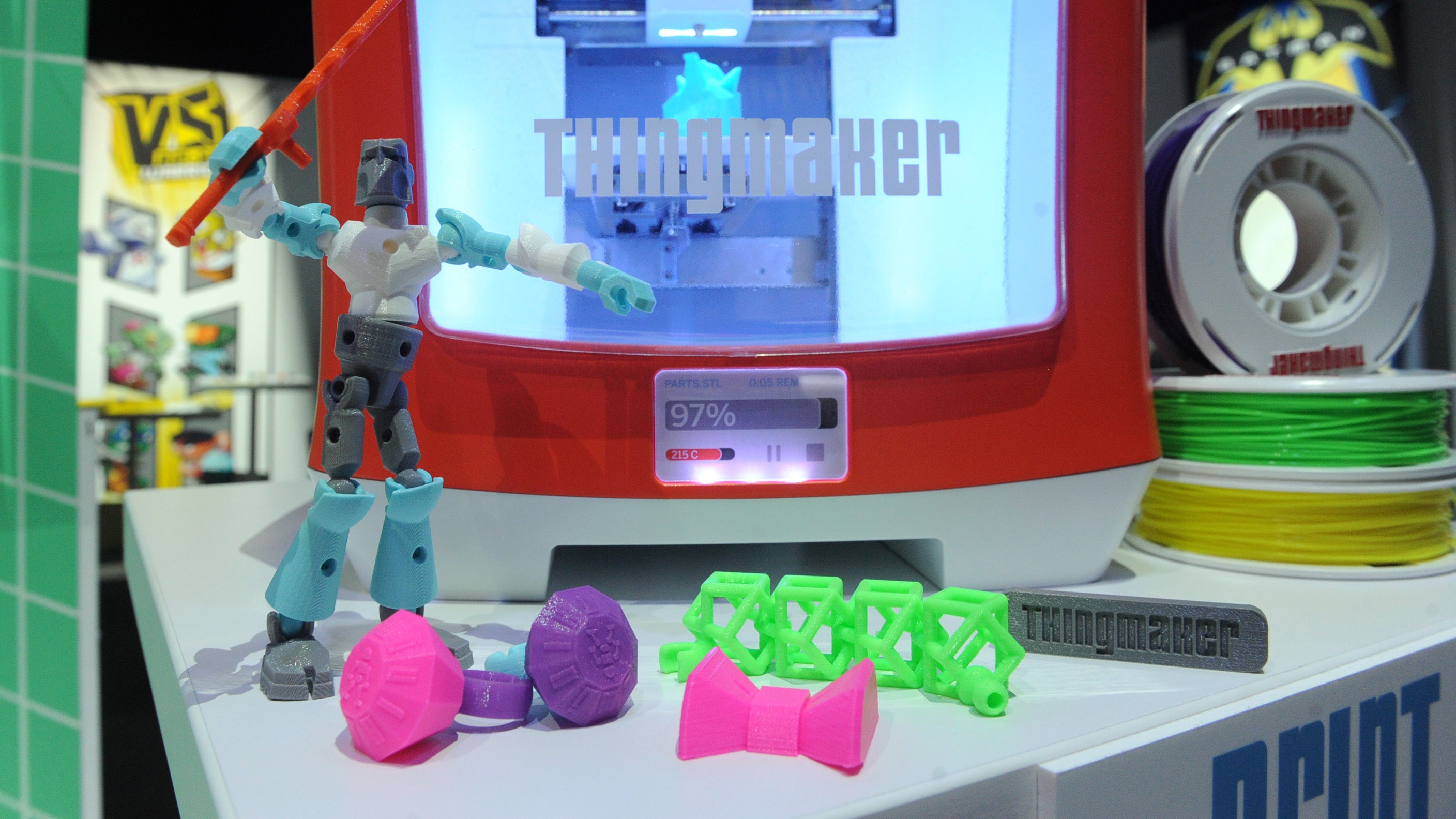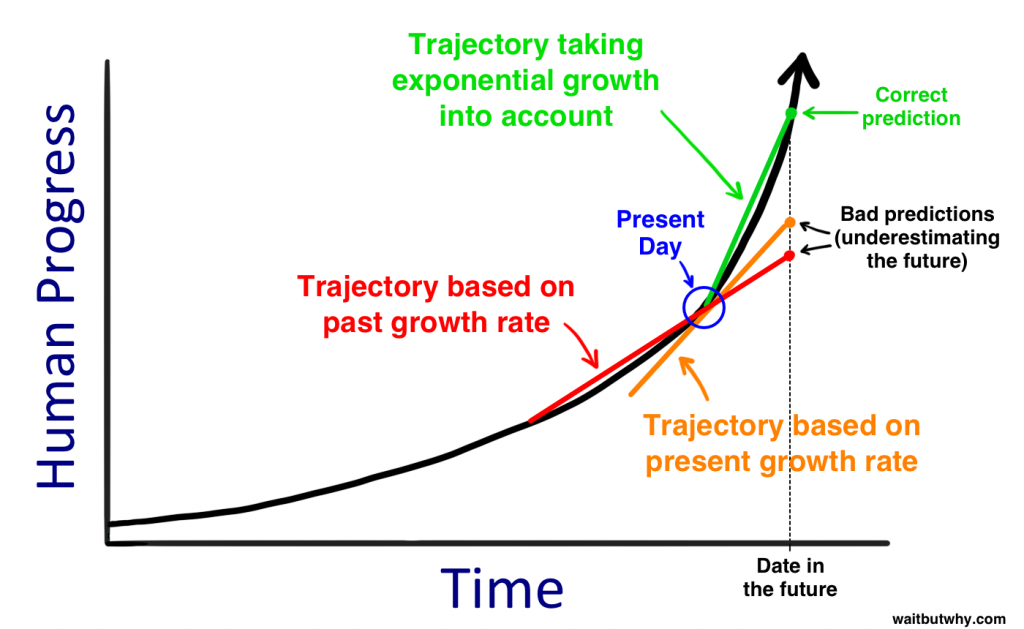Sections
Days of Future Past
[avatar user=”malm” size=”small” align=”left” link=”file” /]
Almost exactly twenty years ago a UK-based computer manufacturer called Psion embarked in earnest on the creation of the Series 5, a landmark device that went on to spawn Symbian OS, the smartphone and all that followed into the twenty-tens. I played a small part in that adventure spending much of the last few years of the 20th century working on foundational communications software development for a product that turned into an industry platform. Among other things that included the IrDA stack, a communication technology that was futuristic in 1996. Twenty years on, it still retains a certain cult mystique for those that recall using it for dial-up access:
In some ways getting a Palm V online by linking it to a T68 over IRDA felt much more exciting that anything you can do with a smartphone now
— Benedict Evans (@BenedictEvans) February 20, 2016
In today’s world, however, there’s a palpable sense of the approach of the post-smartphone era coming up fast and change in the air. The notion that we are living in interesting times in technological terms is reflected in this excellent post from leading tech commentator Chris Dixon. In it he explains how the new shape of things to come is going to be driven by the duality of of small, cheap and ubiquitous hardware (the “peace dividend of the smartphone war“) and Artificial Intelligence. This combination of hardware and software will create a ‘Cambrian explosion’ of new devices and service propositions:
We’ll soon see significant upgrades to the intelligence of all sorts of products, including: voice assistants, search engines, chat bots, 3D scanners, language translators, automobiles, drones, medical imaging systems, and much more.
This seems a strong bet and reflects a significant upsurge in interest in cheap hardware hacking, AI and Machine Learning I’ve observed in the industry over the last couple of years. Nonetheless, the view that smartphones will fade into the background as AI takes over may seem far-fetched to many. Then again, dismissal of this sort of combinatorial advance has a long history – less than a decade ago Martin Cooper the ‘father’ of the cellphone was saying the same thing about the first iPhone:
Speaking of MWC, eight years ago I wrote about one of the creators of the cellphone. https://t.co/1RtTvtflhI pic.twitter.com/tVMJJu3WqM
— Kontra (@counternotions) February 22, 2016
Perhaps it’s not surprising given we humans are in evolutionary terms ill-equipped to absorb the true meaning of exponential growth and therefore of making accurate predictions that take it into account:
Given this backdrop, it is instructive to look at where predictions of the future go wrong and why. Benedict Evans suggests as such in a recent post examining the smartphone era with the benefit of hindsight. In it, Evans explains why the future is often inevitable in the long run but generally arrives via an unpredictable path often with a different set of passengers from what many expected:
It’s always fun to laugh at the people who said the future would never happen. But it’s more useful to look at the people who got it almost right, but not quite enough. That’s what happened in mobile. As we look now at new emerging industries, such as VR and AR or autonomous cars, we can see many of the same issues. The big picture 20 years out is actually the easy part, but the details are the difference between Nokia and DoCoMo ruling the world and the world as it actually happened. There’s going to be a bunch of stuff that’ll happen by 2025 that we’d find just as weird.
The future Evans is talking about lies in and around a trinity of double letter acronyms: VR, AR and AI, and it is as inevitable as previous tech shifts. The real question is how it will arrive and who will benefit. One clue from MWC where the tech is already getting more evenly distributed lies in this widely retweeted picture below. It speaks volumes of our times. The blind masses experiencing bread and circus adventures in Hyperreality while the ‘real’ world passes by entirely undetected. The ultimate triumph of inverted totalitarianism?
In inverted totalitarianism, every natural resource and every living being is commodified and exploited to collapse as the citizenry is lulled and manipulated into surrendering their liberties and their participation in government through excess consumerism and sensationalism
is this picture an allegory of our future ? the people in a virtual reality with our leaders walking by us. pic.twitter.com/ntTaTN3SdR
— Nicolas Debock (@ndebock) February 21, 2016
Artificial Intelligence applied
- A week on from the Guardian’s effusive portrait of DeepMind founder Demis Hassabis, another Google “AI superhero” gets a profile. This time it’s Android creator Andy Rubin and the tone of the article in Wired is more balanced and interesting. What Rubin is seeking to do with his new company Playground is bring to life the world of sensors, AI and cloud that Chris Dixon describes above. It’s nothing short of a total AI hardware platform proposition from the man who foresaw the dominance of an open mobile platform for smartphones and autonomous vehicles:
For AI to reach its true potential, Rubin argues, we need to bring it into the physical world. And the way to do that is to create thousands of devices that pull information from their environment: text and images, sure, but also sound, location, weather, and other sensory data. Rubin wants to fill the world with these data-gathering machines, the better to feed and train those massive neural networks.
- Google Translate is spreading its formidable Machine Learning powered reach and now supports 13 new languages from Amharic to Xhosa. Human translators everywhere must be feeling a degree of existential anxiety.
- Another week and another report of brain structure inspiring artificial intelligence research. In this case, Chinese researchers claim to have created a cyborg rat “that is extremely efficient at solving mazes“ because they’ve wired A* search heuristic nudge support into its brain by the sounds of it:
The robot rat was created by implanting electrodes in its brain and mounting a wireless micro-stimulator on its back. These devices allowed a computer to communicate remotely with the rat, helping it assess the shortest path to take in a maze, avoid dead ends and navigate loops. Rather than remote-controlling the rat, the computer instead provided the rat with hints designed to help it make decisions.
- Before we get too carried away though Wired reminds us of how far we still have to travel with news that our best AI still can’t manage an 8th grade science test. NLP is still a long way from anything approaching AGI.
- Or indeed from eliminating all false positives in a confusion matrix. Which may have resulted in many innocent deaths at the hands of US drones in Pakistan off the back of the NSA SKYNET (yes, they really called it that) program:
SKYNET engages in mass surveillance of Pakistan’s mobile phone network, and then uses a machine learning algorithm on the cellular network metadata of 55 million people to try and rate each person’s likelihood of being a terrorist. …. The 0.008 percent false positive rate would be remarkably low for traditional business applications. This kind of rate is acceptable where the consequences are displaying an ad to the wrong person, or charging someone a premium price by accident. However, even 0.008 percent of the Pakistani population still corresponds to 15,000 people potentially being misclassified as “terrorists” and targeted by the military—not to mention innocent bystanders or first responders who happen to get in the way.
Encryption and Privacy
- The question of whether Apple should cooperate with the FBI in unlocking the iPhone owned by one of the San Bernardino attackers took centre stage this week. The FBI obtained a court order to force Apple to assist their efforts to brute force the password encryption with custom-built software targeted at just this one device. Apple fought back with an open letter from CEO Tim Cook publicly rebutting the order.

- It’s a deeply complicated case for many reasons not least being that both sides have a degree of just cause in holding their respective positions. Troy Hunt provided a great overview of the saga so far and a forensic post on trailofbits.com goes into the full technical details of how Apple could assist the authorities if forced to comply:
On the iPhone 5C, the passcode delay and device erasure are implemented in software and Apple can add support for peripheral devices that facilitate PIN code entry. In order to limit the risk of abuse, Apple can lock the customized version of iOS to only work on the specific recovered iPhone and perform all recovery on their own, without sharing the firmware image with the FBI.
- Just because they can, however, doesn’t mean Apple should and that is at the core of the intense online debate with many tech oriented correspondents from Hackaday to Quartz exhorting Apple to resist. With the likes of Donald Trump predictably ranged against their principled stance it’s hard to see any other position they can take when you consider the consequences of compliance:
The problem is one of consequences, of what comes next on this road paved with good intentions. If Apple gives in for just this one phone, there will be requests for more…and more. Of course, they’ll all be in the interest of solving the most abominable crimes, or for thwarting credible threats. How can anyone be against fighting terrorists, drug dealers, pedophiles…?
- Top 7 Android tools that can “help your personal security“ includes a lot of features already built into Android L and M as well as the indispensable LastPass. Relatedly, 1password launched a family plan for sharing passwords.
Blockchain
- The UK government Office for Science published a surprisingly upbeat, informative and well written document on the huge potential for blockchain technology in both the UK public and private sector. It’s a remarkable to see an official document like this clearly outline the prerequisites for the UK to remain pre-eminent digitally and also to position blockchain within the broader sweep of ledger technologies:
Apps and Services
- Quartz launched an interesting and clever new ‘news’ app based on a bot UI model. You ask it questions and it tells you the news.
✨ It’s here: Quartz for iPhone https://t.co/vQ1cm6kf8o
— Zach Seward (@zseward) February 11, 2016
- Anecdotal evidence that a perceived drift away from Twitter may be turning into a flood:
Our users are moving away from Twitter in massive numbers. In the first month of 2016 we’ve seen Twitter usage drop by 2/3, while Facebook usage has remained constant.
- It’s a trend that’s probably being accelerated by recent high profile celebrity departures like that of Stephen Fry. His thoughts on his leaving are encapsulated in a post entitled “peedinthepool” in which he expands upon the pollution theme:
But Stephen, these foul people are a minority! Indeed they are. But I would contend that just one turd in a reservoir is enough to persuade one not to drink from it. 99.9% of the water may be excrement free, but that doesn’t help. With Twitter, for me at least, the tipping point has been reached and the pollution of the service is now just too much.
Devices and Manufacturers
- MWC takes place this week in Barcelona. There will be the usual flood of new smartphones announced – Samsung have already got in early with the Galaxy S7 bringing “refinement to a proven design” according to the Verge:
- Also debuting at MWC and available ‘later this year’ is the CAT S60, a robust leading-edge Android M and Qualcomm 617 combination with an integrated FLIR thermal camera for “seeing in the dark”. Bullitt Group who design and build all CAT’s Android phones are a major UK-based mobile success story:

- Talking of seeing in the dark, there is more going on with the announcement of $4 Android smartphone for India than first meets the eye. Lauded as “the world’s cheapest phone”, the Freedom 251 is an Android 5.1 device with a frankly barely credible spec for that price. It’s manufacturer is an unknown company called Ringing Bells. IndiaTimes smells a rat – it could be a response to Facebook’s Free Basics or maybe even a political ruse but there’s no way even with today’s collapsing hardware prices you could sell this for $4 and make any kind of margin:
The Freedom 251 has a 4-inch display, 1.3GHz quad-core processor, 1GB RAM, and a 1,450 mAh battery. It comes with a 3.2-megapixel rear camera and a 0.3-megapixel front camera. The phone also comes with 8GB of internal storage, which can be expanded by another 32GB using a microSD card. … Surprisingly for its price, the Freedom 251 will run on Android Lollipop 5.1 and comes pre-installed with several apps.
- The harsh reality for most OEMs exhibiting their new wares in Barcelona, though, is that users are not finding enough reason to update their smartphones any more:
- It’s not clear if this flexible screen prototype developed at Queen’s University Human Media Lab on an LG OLED screen will be present at MWC. It offers a glimpse into the future of mobile device form factor and physical interaction model:

The Internet of Things and Wearables
- “Sense” is a curious-looking “intelligent, secure hub for the smart home“ developed by a team of ex-Mozilla engineers. It does the usual things you might expect from any such first world proposition in the AI era with a distinct twist:
All the machine learning, computation and data processing takes place on the device itself – not the cloud. The results of that processing – for instance, a video clip of an intruder – is sent to the cloud service in an encrypted format. The keys to decrypt the content are only on the device, meaning even if Sense’s servers were hacked, the attacker wouldn’t gain access to your personal data.

- Swiss watches overhauled by smart watches:
Smartwatch Shipments Have Overtaken Swiss Watches For The First Time https://t.co/uhFzOOymrM by @johnbiggs
— TechCrunch (@TechCrunch) February 19, 2016
- The Verge on an IoT experiment at city scale in Amsterdam involving a radio technology called LoRAWAN.

- This cybernetic third arm for drummers is a wearable of sorts:
- Zzzoomba:
The little nub on the front of my roomba is the exact height of the power switch on my UPS.
Go on, guess how I learned this.
— Jim Perrin (@BitIntegrity) February 17, 2016
Cloud
- Amazon are looking to fill the recently-vacated Parse-shaped hole with AWS judging by this fairly brazen officially sanctioned blog post.
Software Engineering
- “Write code that is easy to delete not easy to extend” by programmingisterrible.com contains many pearls of often contradictory wisdom within the course of a single article such as this:
“the easiest code to delete is the code you avoided writing in the first place.”
- This Quora thread on the advantages and disadvantages of being a software engineer is worth checking out. The consensus on the cons is: i) impact on health, ii) impact on social life, iii) potential for replaceability down the line on which one commentator makes this point:
Remember your neighbor can’t hire a plumber from China but your boss can hire a programmer from a place where the cost/standard of living is far lower. Always keep an eye on making yourself as valuable as possible to the organization. (no one is indispensable so don’t delude yourself)
Work and Innovation
- There’s been a recent firestorm of revelations about a toxic work culture at Nest with claims of enforced weekend working and getting yelled at by CEO Tony Fadell. The truth one suspects is somewhat more nuanced as always in tech and is probably in part to do with different interpretations on passion. This insightful post from an ex-Nest employee on his time there provides some needed balance.
- FirstRound on Location Labs, a company that retains 95% of its employees. Its secret? A sort of updated version of mushroom management:
Hire promising people — who are in it for the right reasons, not the biggest compensation package — then toss them into the deep end.
- The 100 coolest people in tech in the UK according to Business Insider makes for a curious list replete with CEOs, Googlers, politicos, journalists and VC types seemingly jockeying for position with actual techies. Appropriately enough, top of the tree is Eileen Burbidge of Passion Capital, the UK Treasury’s special envoy for Fintech and a special advisor to David Cameron.
- Whether that list is enough to deal with the extent of competition Chinese innovation will unleash upon the UK and rest of the world in the coming decade is an open question. This a16z article provides a good overview of the challenge and ways to think about dealing with Chinese companies. The ‘going to war’ mentality suggests a degree of ruthlessness which the fragmented and arguably fragile nature of the UK tech scene seems ill-equipped to resist any sustained assault.
- Accenture will save us once they’ve dealt with the Pride of lions. This from Gadgette editor Holly Brockwell, number 89 on the list:
https://twitter.com/holly/status/701004084736872448
Society and Culture
- The New Yorker published a profile of the fuerdai or rich second generation Chinese kids of Vancouver and their spending habits. The article makes some revealing points about the extent to which the rich are seeking to take their assets as well as themselves outside of China.
- David Bowie was not one for niceties it seems when it came to turning things down. The Guardian provided ten examples one of which was the chance of a knighthood. His response feels very generally applicable:
“I would never have any intention of accepting anything like that. It’s not what I spent my life working for.”
- Life on Mars. Or at least a simulation of it NASA.

- The Telegraph reporting on researchers who claim to have discovered how to delete unwanted memories in another case of reality mirroring art. That was the premise of Charlie Kaufman’s Eternal Sunshine of the Spotless Mind:
- Ironically there’s a word for that frustrating feeling of not quite being able to remember something. That feeling of words being on the tip of your tongue is called Lethologica.


